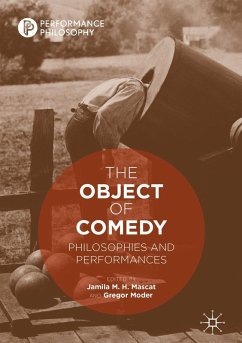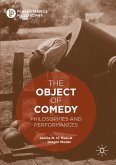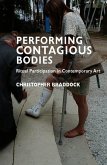What is the object of comedy? What makes us laugh and why? Is comedy subversive, restorative or reparative? What is at stake politically, socially and metaphysically when it comes to comedic performances? This book investigates not only the object of comedy but also its objectives - both its deliberate goals and its unintended side effects.
In researching the object of comedy, the contributions gathered here encounter comedy as a philosophical object: instead of approaching comedy as a genre, the book engages with it as a language, a medium, an artifice, a weapon, a puzzle or a trouble, a vocation and a repetition. Thus philosophy meets comedy at the intersection of various fields (e.g. psychoanalysis, film studies, cultural studies, and performance studies) -regions that comical practices and theories in fact already traverse.
In researching the object of comedy, the contributions gathered here encounter comedy as a philosophical object: instead of approaching comedy as a genre, the book engages with it as a language, a medium, an artifice, a weapon, a puzzle or a trouble, a vocation and a repetition. Thus philosophy meets comedy at the intersection of various fields (e.g. psychoanalysis, film studies, cultural studies, and performance studies) -regions that comical practices and theories in fact already traverse.








